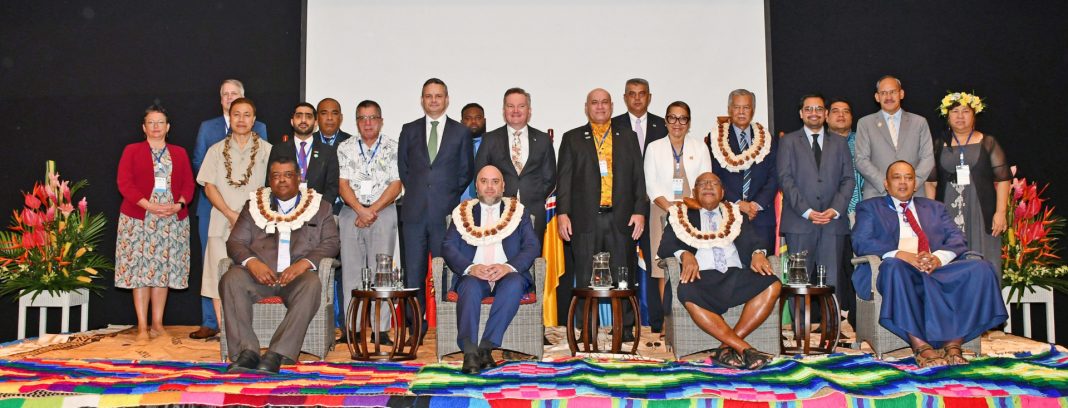Faced with the existential threat of a rapidly warming world, leaders from the Pacific gathered in Fiji this month to discuss regionally-driven solutions that can limit the average global temperature rise to 1.5C.
The High-Level Dialogue sought to forge stronger regional coordination in identifying and advancing Pacific needs and priorities as part of global efforts to address climate change.
Hosted by the Government of Fiji, 15 Pacific Small Island Developing States (PSIDS), as well as Australia and New Zealand as observers, participated in the high-level event alongside invited stakeholders, including representatives of UN and development agencies, international financial institutions, non-governmental organisations and the outgoing and incoming COP Presidencies from Egypt and the United Arab Emirates.
Fiji’s Prime Minister Sitiveni Rabuka opened the Dialogue by welcoming attendees to a “critical discussion on climate change that represents a real threat to our islands, our people, and our very way of life”.
“The grim reality for us in the Pacific includes devastation from mighty storms, rising sea levels, deadly pollution, and degradation of land and reefs,” said Prime Minister Rabuka. “One crucial figure is on the minds of regional leaders: 1.5 degrees Celsius. This is the target for limiting global warming and raising our prospects to protect everything that is precious to us in our island environment. But doubts arise about the world’s ability – or even willingness – to go there. So for us, it’s a question of constantly pushing for 1.5 degrees in every way we can.”
Building on the success of the 2022 Caribbean High-Level Dialogue, the Pacific Dialogue was organized in collaboration with the Pacific Island Forum Secretariat, the South Pacific Regional Environment Programme, and The Pacific Community, with technical support from UN Climate Change.
A major focus of discussions was the Blue Pacific regional initiative and the need for ocean-locked countries to adapt to a rapidly changing climate and to build strong and resilient communities. Other thematic discussions included transitioning to a clean energy future; enabling access and securing support for more ambitious climate action; monitoring progress and ensuring accountability of national and international climate action; and uniting and amplifying Pacific voices on the international stage.
With an eye on their joint bid, together with Australia, to host COP31 in 2026, the PSIDS laid out the main actions needed both regionally and internationally to ensure that global average temperature increase does not exceed 1.5C. Top priorities include:
* A call for a regional Pacific declaration outlining a timeline and plan for the full phase-out of fossil fuels, including the elimination of fuel subsidies and a moratorium on new fossil fuel explorations and extractive licenses.
*A call for all forms of climate finance to better respond to the special circumstances, needs and priorities of PSIDS, including increased investment in climate adaptation; dedicated funding for Small Island Developing States (SIDS) that responds to national and regional needs; and increased support for ocean-centric initiatives that enhance the Pacific’s ability to monitor, conserve, and restore ocean ecosystems.
*Stronger collaboration between nations, organisations and stakeholders to share knowledge, resources and strategies that support the health and resilience of oceans in the lead-up to COP28.
* A call for increased support and capacity-building for PSIDS to implement the Enhanced Transparency Framework under the Paris Agreement, both to improve national accountability and to exert greater pressure for ambitious global climate action through mechanisms such as the Global stocktake.
Reflecting on the issues raised, the Pacific Ministerial Climate Champions called for the outcome of the Dialogue to include an immediate, clear, coordinated, and action-oriented strategy to advance discussed priorities at COP28 and beyond.
The second Caribbean SIDS High-Level Dialogue will take place on 28-29 September 2023 in St. George’s, Grenada.
SOURCE: UNFCCC/PACNEWS














